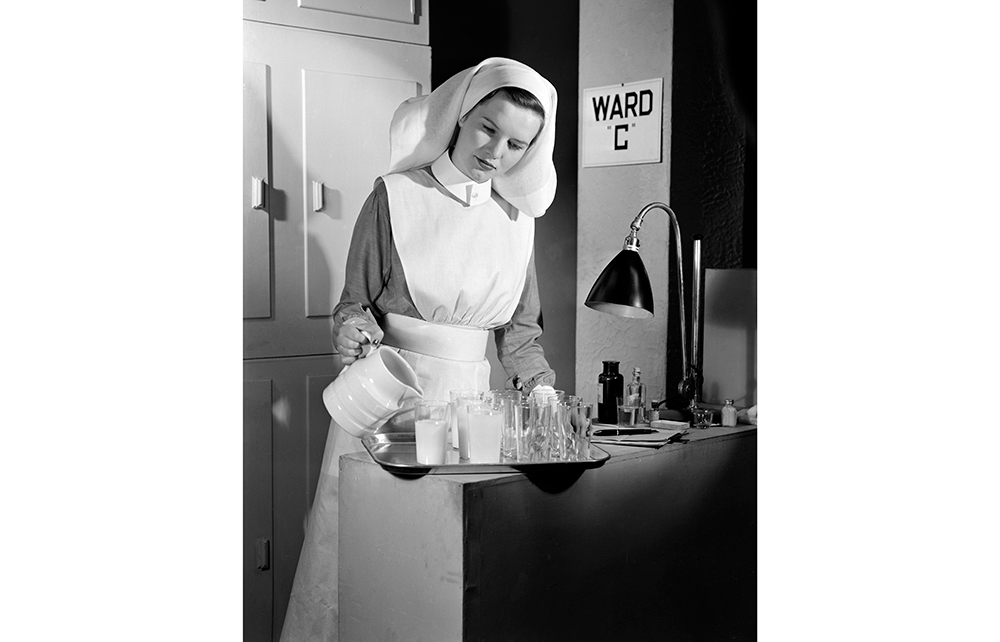For fans of Ysenda Maxtone Graham’s unique blend of high comedy and shrewd social observation, a new book is cause to leap on to the nearest chair and emit several loud shrieks. Jobs for the Girls is the third in the author’s trilogy on ‘lost worlds of Britain’. These are recent, touchable lost worlds, she stresses in her introduction, ‘still in living memory’, as recalled vividly – and often hilariously – by people who were there in her earlier books, Terms and Conditions, about life in girls’ boarding schools, and British Summertime Begins, on what children from all walks of life got up to in the school holidays.
Jobs for the Girls picks up where they left off, with Maxtone Graham’s antennae homing in on early adulthood. The book thrums with life and noise: the juddering of factory machinery, the clack-clack of manual typewriters, the whirring of early Roneo copiers. Did ‘some of the character and fun go out of office life’ when this clattering was reduced to ‘eerie silence’ by the email age, the author wonders. Any wistfulness for this lost world is parked early on, subsumed by a simmering rage as we learn that both the chronically undereducated boarding school girls of Terms and Conditions and their secondary modern sisters were ‘thwarted before they started’ in the workplace.
Maths and sciences were excised from the curriculum to keep girls safely in the ‘nurse’ rather than ‘doctor’ camp
‘There’s no point in your having a career, because you’re perfectly bedworthy and you’ll get married,’ was one father’s bluff advice to his daughter. Meanwhile, the ‘tap of career opportunity’ was simply ‘switched off’ by schools that had excised maths and sciences from the curriculum to keep girls ‘safely in the “nurse” rather than “doctor” camp’. As late as the mid-1970s, the headmistress of St Mary’s, Ascot was telling parents: ‘Really, we want most of our girls… to marry into the Foreign Office.’







Comments
Join the debate for just £1 a month
Be part of the conversation with other Spectator readers by getting your first three months for £3.
UNLOCK ACCESS Just £1 a monthAlready a subscriber? Log in